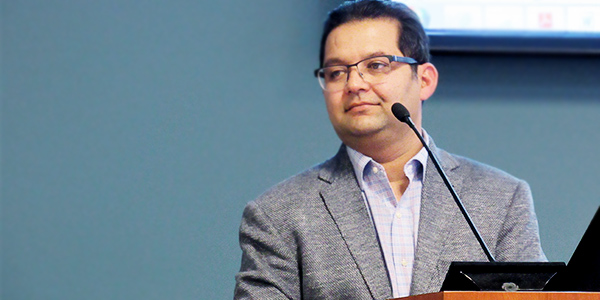By Amanda Durish Cook
MISO’s Planning Advisory Committee will vote through Friday on whether to convert the longstanding Interconnection Process Task Force (IPTF) into a working group in an effort to save it from retirement.
The RTO last month proposed to end the task force and fold its discussions and duties into the Planning Subcommittee, a proposal that proved controversial for some stakeholders. (See “End of IPTF?” MISO Queues up Interconnection Options.)
MISO planners are still pulling for retirement, but many stakeholders continue to support converting the task force into a working group, as evidenced by discussion during an Oct. 17 PAC conference call where the Transmission-Dependent Utilities sector introduced a motion to vote on a makeover. The IPTF itself had already voted to convert itself into a working group. PAC voting results are considered advisory, not binding, for RTO staff.
“I think more folks agree that talk isn’t winding down around interconnection issues. If anything, it’s ramping up,” said Clean Grid Alliance’s Rhonda Peters, pointing out that MISO still has a great deal of interconnection work ahead of it based on the size of its 90-GW interconnection queue.
Peters asked the RTO to convert the task force into a more permanent working group so interconnection issues can continue to receive detailed discussions. She argued that the Planning Subcommittee doesn’t have the time to fully explore interconnection topics during its meetings.
“There is no doubt that years ago, the IPTF should have transitioned into a working group,” Independent Power Producers sector representative Mark Volpe said, noting that MISO’s storage participation model under Order 841 will raise policy issues involving the queue with which stakeholders will need to grapple. “There’s a lot of work left to be done,” he said.
“Squelching stakeholder voices on interconnection rule and policy matters is a bad idea based on the breadth of concern about the subject,” Apex Clean Energy’s Richard Seide said.
MISO planners at the meeting said they still recommend folding the IPTF into the Planning Subcommittee, although this time they styled the idea as a “consolidation” of the two by the end of 2018.
Resource Utilization Director Vikram Godbole said the RTO is now recommending a consolidated Transmission and Interconnection Planning Subcommittee (TIPSC), with a new charter and meetings held on an as-needed basis. The subcommittee would report to the PAC and “provide subject matter expertise to the MISO planning staff on technical matters related to the transmission and interconnection planning processes.”
Godbole pushed back on the stakeholder suggestion that the RTO is trying to exclude some stakeholder voices with its proposal.
“That’s not the intent at all,” he said, adding that it’s always MISO’s goal to have well-rounded proposals influenced by a wide range of stakeholders.
Madison Gas and Electric’s Megan Wisersky said she “couldn’t think of a group more ill-suited” to take on interconnection issues than the PAC. She said a power imbalance exists within the group.
“For one, the PAC is sector-focused and not stakeholder-focused. We need the ideas of the stakeholders” to inform interconnection issues, Wisersky said.
In response to stakeholder questions about how MISO and the PAC would resolve an impasse on the IPTF’s fate, Senior Director of Expansion Planning Jeff Webb said the results of a PAC vote and the RTO’s preferred approach will both be put before the Steering Committee for further discussion.
But some stakeholders support retirement of the decade-old IPTF. Great River Energy’s Mike Steckelberg said he and other utilities, including Entergy, Northern Indiana Public Service Co., Duke Energy and Vectren, agree with MISO’s proposal to dissolve the IPTF effective January 2019.
“The IPTF has delved into discussions which are the responsibility of the transmission planners,” Steckelberg said. “Transmission planners have the engineering expertise, judgment and responsibility to determine what reliability studies are needed to interconnect new generation, and this is best done in the [Planning Subcommittee] forum.”





